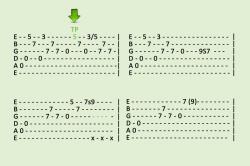What is the best voice technique for voice production?
The best voice technique for optimal voice production depends on the specific goals you have for your voice, whether it's for singing, public speaking, acting, or simply improving your vocal quality for everyday communication. Here are some key principles and techniques that can help you achieve optimal voice production:
Breath Support: Proper breath control is fundamental for any form of voice production. Learn diaphragmatic breathing techniques to support your voice and provide a steady flow of air while speaking or singing.
Vocal Warm-Up: Always warm up your voice before extended use. Vocal warm-up exercises can help prevent strain and improve vocal flexibility. These can include lip trills, humming, sirens, and vocal scales.
Posture: Maintain good posture to allow for proper alignment of your vocal apparatus. Stand or sit up straight with your shoulders relaxed and your head balanced over your spine.
Resonance: Understand the concept of resonance and how it can affect your voice. Experiment with different resonating spaces in your body, such as chest, throat, and head, to achieve the desired tone and quality.
Pitch and Range: Work on expanding your vocal range gradually. Range exercises can help you access both high and low notes comfortably without straining.
Articulation: Clear articulation is crucial for effective communication. Practice articulation exercises to improve your diction and pronunciation.
Volume Control: Learn to control your volume without straining your vocal cords. It's essential to be heard without shouting or pushing your voice.
Tone Quality: Experiment with your vocal tone and find a sound that suits your purpose. You can develop a warm, authoritative, soothing, or expressive tone based on your needs.
Hydration: Stay well-hydrated to keep your vocal cords lubricated. Avoid excessive caffeine and alcohol, as they can dehydrate your vocal cords.
Rest and Recovery: Just like any other part of your body, your vocal cords need rest and recovery. Avoid overuse and give your voice time to recover, especially if you've been speaking or singing for an extended period.
Voice Training: Consider seeking guidance from a professional voice coach or speech therapist, especially if you have specific goals or voice-related issues. They can provide personalized exercises and feedback to help you improve.
Practice Regularly: Consistent practice is key to mastering any skill, including voice technique. Set aside time for daily or weekly vocal exercises and practice sessions to see improvement over time.
Remember that everyone's voice is unique, and what works best for one person may vary for another. It's important to be patient with yourself and seek guidance if you encounter any difficulties or discomfort while working on your voice technique. A professional voice coach or therapist can provide personalized guidance to help you achieve your specific goals.
Perfecting Your Voice: The Best Techniques for Voice Production
Voice production is the process of using your voice to create the desired sound. It involves controlling your breath, posture, resonance, articulation, and pitch. Good voice production is essential for singers, actors, public speakers, and anyone who wants to sound their best.
Here are some of the best techniques for voice production:
- Breathe properly. Breathing is the foundation of good voice production. When you breathe deeply, you support your voice and give it more power. To breathe properly, stand up straight and place one hand on your chest and the other on your stomach. As you inhale, your stomach should expand. As you exhale, your stomach should contract.
- Maintain good posture. Good posture helps to open up your airways and allows you to breathe more easily. To maintain good posture, stand up straight with your shoulders relaxed and your head held high.
- Resonate your voice. Resonance is the amplification of your voice through the body's natural cavities, such as the sinuses and mouth. To resonate your voice, focus on placing your voice high in your head. You can practice resonating your voice by singing or humming scales.
- Articulate clearly. Articulation is the pronunciation of individual words and sounds. To articulate clearly, make sure to open your mouth wide enough and to pronounce each word carefully.
- Control your pitch. Pitch is the highness or lowness of your voice. To control your pitch, practice singing or humming exercises. You can also use a pitch pipe or tuner to help you stay on pitch.
Vocal Mastery: Essential Techniques for Optimal Voice Production
In addition to the basic techniques listed above, there are a number of other essential techniques that can help you to achieve optimal voice production. These include:
- Warm up your voice before using it. Warming up your voice helps to stretch and loosen your vocal cords. This can help to prevent vocal strain. There are a number of different vocal warm-up exercises that you can do.
- Stay hydrated. Drinking plenty of water helps to keep your vocal cords lubricated. This can help to prevent vocal dryness and strain.
- Avoid smoking and alcohol. Smoking and alcohol can irritate your vocal cords and dry them out. This can lead to vocal strain and damage.
- Get enough sleep. When you're well-rested, your voice is less likely to strain. Aim for 7-8 hours of sleep per night.
Sound Advice: Strategies for Achieving Your Best Voice Production
Here are some additional strategies for achieving your best voice production:
- Find a vocal coach. A good vocal coach can help you to learn the proper techniques for voice production. They can also help you to identify and correct any vocal problems that you may have.
- Record yourself and listen back. This is a great way to identify areas where you need to improve. Pay attention to your pitch, articulation, and resonance.
- Practice regularly. The more you practice, the better your voice production will become. Try to practice for at least 30 minutes per day.
With practice and dedication, you can achieve your best voice production.












